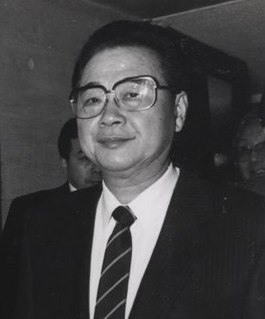A Quote by Li Peng
That was the peak. I just knew it was modern, not traditional culture. I could be cool
Related Quotes
If you come from a working-class background, you can't afford to write full time, because you're just not being paid. Basically, all my arguments come down to Marxist doctrine: The world is shaped by money, so the only voices you'll hear are the ones with money behind them. But thankfully, culture and cool are some things that circumvent money, because if you're cool, people will want to give you money - suddenly you shape the market and people start coming to you. Which is why culture has always been a traditional way out for working-class people.
A lot of times, people think of Asian culture as some mythical world instead of modern people with modern occupations with modern problems, modern tools. Like, we're not all just talking Taoism and kung fu - some people are just trying to get over their breakup with their boyfriend, and they're Facebook-stalking.
Is it our task to force the biblical doctrine of God to answer to modern culture, or (is it our task) to address modern culture with the biblical doctrine of God? If modern culture-or any culture-establishes the baseline for the doctrine of God, such a doctrine will certainly bear little resemblance to the God of the Bible.
Many teachers of the Sixties generation said "We will steal your children", and they did. A significant part of America has converted to the ideas of the 1960s - hedonism, self-indulgence and consumerism. For half of all Americans today, the Woodstock culture of the Sixties is the culture they grew up with - their traditional culture. For them, Judeo-Christian culture is outside the mainstream now. The counter-culture has become the dominant culture, and the former culture a dissident culture - something that is far out, and 'extreme'.




































